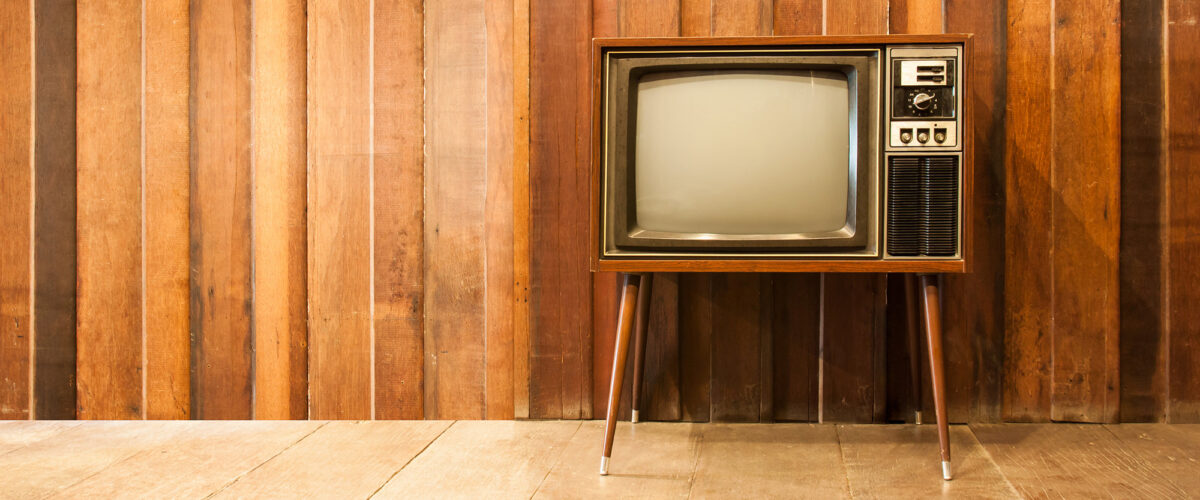It isn’t at all novel to admit this to you, dear reader, but New Year’s resolutions are gratingly unbearable; even under the best conditions.
But I must say that this year, there is a uniquely hollow and darkly comedic quality to having the immortal Death himself (or, as we’ve all grown more comfortable referring to him in American English: Ryan Seacrest coming to you live this New Year’s Rockin’ Eve!) encourage us — one and all — to put on a brave face and fresh pair of sweatpants for the new year!
Sure thing, Ryan, you haven’t aged in 20 years, and none of our pants fit after we worked our way to the bottom of several pints of Ben & Jerry’s while watching news footage of the insurrection last January, and the slow drip of steady disruption that subsequently follows any change in case counts, exposures, closed schools and child care arrangements, not to mention the last two years of cancelled plans, projections and possibilities in the wake of ongoing and unending pandemic apocalypse.

Eric Minton
Or, more succinctly, in the immortal words of Clark Griswold: “Hallelujah, holy shit, where’s the Tylenol?!”
To be fair to Seacrest, though, there aren’t enough Top 40 JAMZ and bow-tied corporate platitudes to really pull any of us back from the precipice of what it has been like to be a human for the past two-ish years. I say all this as a geriatric Millennial who cried through a Google commercial in between midnight performances of pop-stars I don’t recognize.
Living in the present
But one thing I think could, maybe, with appropriate caveats, be helpful about turning the page from one weird day in December 2021 to another weird day in January 2022 isn’t that this annual transition somehow allows me to suddenly manifest my preferred future were I start listening to more #selfcare podcasts and stop self-medicating with Krispy-Kreme, but that I might use this calendrical shift to start living in the present instead of the past or in some less horrific, imagined version of the future (which, if we’re being honest, is probably just a different version of the past, but with maybe better phones).
To be clear, what I’m advocating for isn’t a demure New Year’s celebration punctuated by a kind of nervy, over-cooked New Yorker cynicism that ends up undermining yet one more feel-good American cultural expression of can-do optimism (a stance for which I am boringly famous, at least for regular readers of news that is almost entirely Baptist in nature). Instead, this year I’m aiming for a kind of fresh resolve to no longer continue producing solutions for the future based on problems from the past.
Which is weird for a psychotherapist who talks about people’s family histories by the hour for a living, but hear me out.
For most of us, the pain that raised us, maimed us, shaped us, that we grew up with and learned to effectively wield against those who would do us harm develops a kind of emotional gravity later in life. I’m saying it grounds us and our reactions to the world around us anytime we find ourselves in stress. Not in a way that’s terribly helpful for the moments in front of us currently, but in a way that probably helped us survive what were (likely) out of control, unsafe and unfair situations enacted upon us as young people.
“Because now is different than back then, and frankly, so am I, and frankly so is the world around me.”
It’s why, even now, I have this cellular fear of being misunderstood and alone in the world that activates all sorts of unhelpful coping responses that look a lot like they did when I was a pimply teen in the early aughts. I withdraw, I pout, I listen to a lot of Sufjan, and I pour myself into work I think will save me, heal me and carve out a place in the world that never can be taken away.
It didn’t work back then, and it sure as hell doesn’t work now. Because now is different than back then, and frankly, so am I, and frankly so is the world around me.
Right script, wrong players
These days I find myself, as a 36-year-old still somewhat pimply adult man, surrounded by people who choose me, over and over, even when I pout and disconnect and moodily listen to a lot of Sufjan and overwork myself to the edge of oblivion. These people are different than the ones who raised me, and when I continue to respond to them in the midst of stress and conflict as if they could repair the pain I grew up with, I keep the unfairness and lack of safety I experienced a long time ago in circulation both now and for the future.
As a therapy mentor of mine is fond of saying: “Our pain has the right script, just the wrong players.”
This isn’t just true for navel-gazing Millennial dads contemplating their ever-unfolding mortality at the beginning of the new year, it’s true for families, institutions, nation states, and whole faith traditions.
When we respond to the problems of the present as if the present were the past, our solutions aren’t just anachronistic and unhelpful, they will eventually, over time, destroy our chance at having a future with the people looking us in the eyes right now.
“When we respond to the problems of the present as if the present were the past, our solutions aren’t just anachronistic and unhelpful, they will eventually, over time, destroy our chance at having a future with the people looking us in the eyes right now.”
Individually, this might look like when a father’s childhood pain at never being good enough to get what he needed from those who mattered most prevents him from being fully present, patient and open-handedly alive with the success, failures and quiet wonder of his own young son.
I know this because it happened to me, and if I’m not careful it could happen to my son.
Collectively, this might look like when communities so terribly afraid of losing a sense of safety and stability that has been gone for years now sacrifice the well-being and future flourishing of the most vulnerable around them by demanding that life return to normal IMMEDIATELY NO MATTER THE COST.
Pretending that building an army of $75,000 electric vehicles will save an earth that is, every day, losing ground to the oceans surrounding it, is as foolishly out of date as believing that refusing to teach fourth graders about America’s long history of racially motivated theft, exploitation and violence will solve the lack of stability any of us feel at the state of things unfolding around us right now.
Angrily refusing to treat this pandemic as an actual reality because you are worried about your loss of identity and safety in a world gone mad doesn’t actually protect you from the novel coronavirus or a sclerotic democracy, it only destroys your chance at having a future with the people looking you in the eyes right now.
I know this, because it happened in my family.
Or, maybe more pointedly for a readership brimming over with Baptists, answering the acute needs of the present world with a version of institutional American Christianity primarily interested in effectively coping with the pain of segregationists, moral majorities and a quickly evaporating white middle class reeling from a loss of cultural cache, stability and the disintegration of the world as they know it will, over time, destroy American Christianity’s chance at having a future with the people looking it in the eyes right now.
I know this, because I am one of those people.
Put away childish things
So, as St. Paul once reminded people entering a brand-new world (that still looks strangely similar to the old one they remember), it’s time we put away childish things.
The childish things aren’t your pain, or what happened to you in the past. To be clear, the childish things are whenever we pretend that how we coped with the unfairness we experienced as children will solve whatever is happening to us as adults right now.
“We are never going back, and no amount of earnest resolution can change that.”
This new year, most of all, I am desperate for us to resolve to tell the truth of what we all went through and are currently attempting to survive; to listen to what it has and is doing to us, and what solutions it is demanding from us, right now and not in some imagined version of our past projected out into the future with probably better phones.
We are never going back, and no amount of earnest resolution can change that. We can only go forward, armed with the knowledge that whatever awaits us next will meet someone, or an entire group of someones, who have grown up, who are no longer alone and who are able to be honest about what they went through without pretending or performing.
Because these adults are resolutely living in the moment before them, armed with the truth that it isn’t their pain that is in desperate need of some #selfcare and #riseandgrind energy, it is the present itself, engulfing all of us, that is in desperate need of our collective clear-eyed resolution to change what we see happening to all of us.
May you, and I, and us be so resolved this year.
Eric Minton is a writer, pastor and therapist living with his family in Knoxville, Tenn. He holds a bachelor’s degree in psychology from the University of Tennessee, a master of divinity degree from Fuller Theological Seminary and a master of science degree in clinical mental health counseling from Carson-Newman University.
Related articles:
Choose a 2022 personal resolution from 40,000 words | Opinion by Phawnda Moore
On radical acceptance and crap sandwiches | Opinion by David Gushee
Five tips from the dead about living life in the new year | Opinion by Mark Wingfield


